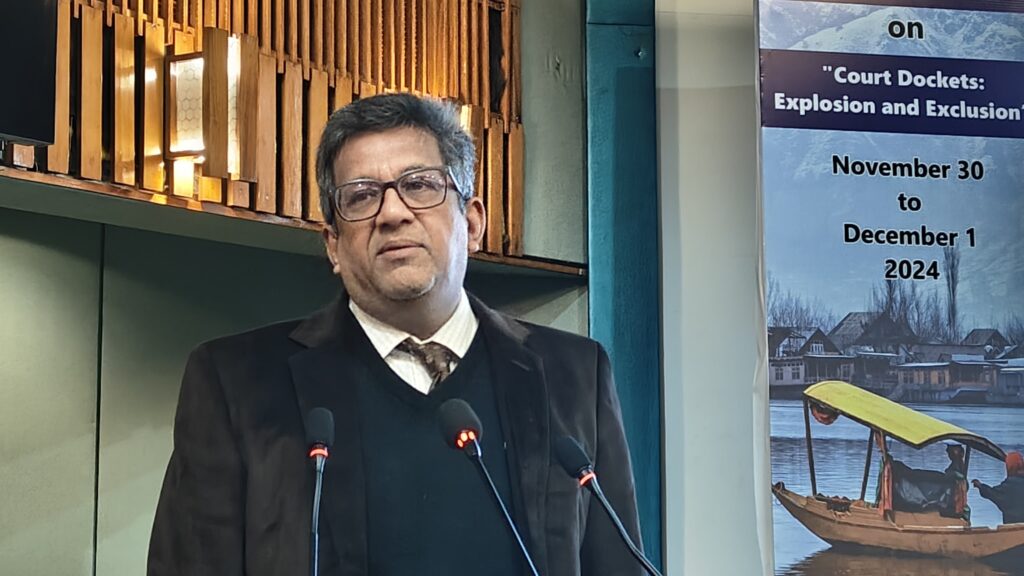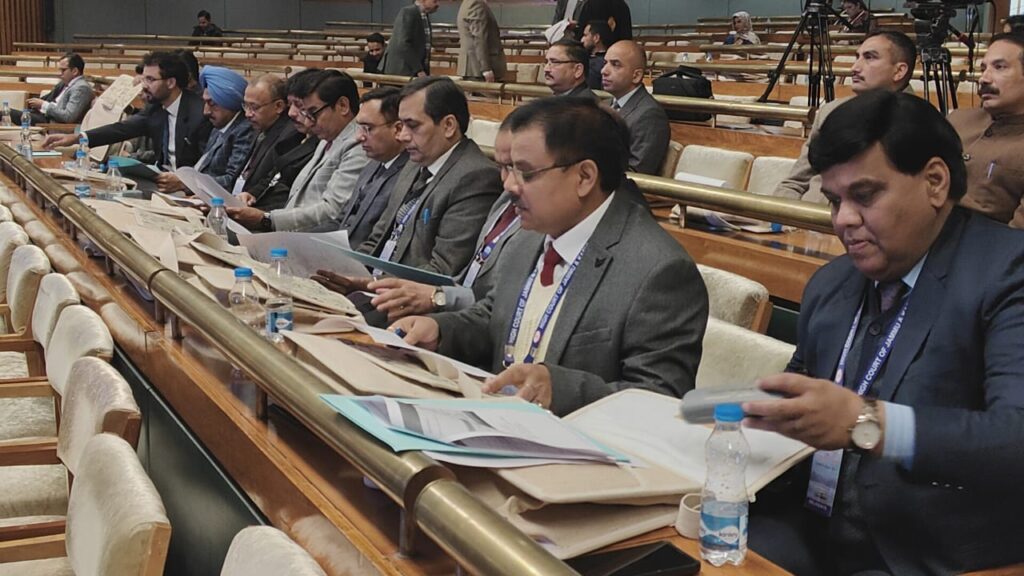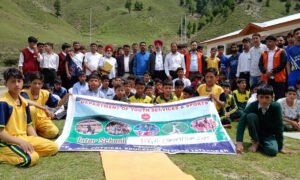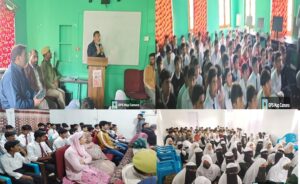Two Day North Zone-I Regional Conference on Court Dockets concludes in Srinagar
SRINAGAR, DECEMBER 01: Two Days North Zone-I Regional Conference on “Court Dockets: Explosion & Exclusion” organized by National Judicial Academy, Bhopal and hosted by the High court of J&K and Ladakh and Jammu & Kashmir Judicial Academy concluded today at SKICC, Srinagar.


The second day of the Two-days North Zone Regional Conference witnessed two technical sessions. In the first technical session of the day, Justice Rajesh Bindal, Judge, Supreme Court of India alongwith Justice A. Muhamed Mustaque, Judge, High Court of Kerala, resource persons of the session, discussed on the e-Courts Project, emphasizing strategies to bridge the digital divide.
Justice Bindal highlighted that inadequate equipment and infrastructure are persistent issues affecting all judicial stakeholders including judges, lawyers and litigants. He emphasized that it is imperative to consider robust internal regulations for three primary stakeholders: judges, lawyers and litigants. It should address unequal access to devices and technological infrastructure, issues related to bandwidth and connectivity, and varying levels of proficiency and familiarity with technology so that the delivery of justice is equitable in the true sense of the term.
Justice Mustaque through a Power point presentation discussed bridging the digital divide and role of e-services. He underscored the importance of inclusivity and accessibility in leveraging technology for a robust justice delivery system. He further stressed that the amalgamation of technology with the judicial processes promises to enhance efficiency, capability, accessibility, and transparency in the journey of justice.
Digital Courts can fasten up the backlog of cases, thereby, reinforcing public trust in the legal system. Justice Mustaque also highlighted the four principles of digital accessibility i.e. Perceivable, Operable, Understandable & Robust.
The second technical session of the day was chaired by Justice N. Kotiswar Singh, Judge, Supreme Court of India. Justice A. Muhamed Mustaque, Judge, High Court of Kerala and Justice M. Sundar, Judge, High Court of Madaras were the resource persons for the session.
Justice N. Kotiswar Singh reiterated that case management provides the immediate need for preventing futile backlogs, providing swift justice, dealing with backlogs with a more determined effort and creating an atmosphere of joint venture between judges, lawyers, litigants and administrative officers. He emphasized that the judges must keep track of the case by adhering to the schedules and see that no unreasonable time should be allowed to be wasted for service of the process and filing of the written statements.
Justice Sundar in the concluding session discussed the role of Artificial Intelligence(AI) in judicial decision making. He explained that the emerging technologies, such as artificial intelligence and blockchain, are revolutionizing judicial processes. He further stated that by adopting these advancements, the judiciary can strengthen governance, security, and efficiency, laying the foundation for future innovations.
Justice Mustaque through the PowerPoint presentation explained ON-courts portal service successfully launched at High Court of Kerala for ensuring transparency and efficient Justice delivery system. He also introduced the concept of digital courts which creates a system in which judicial and administrative processes are simplified.
Director J&K Judicial Academy, Sonia Gupta compared all the technical sessions of second day of the conference.
All the sessions remained very interactive during which all the participants actively participated and shared their experiences, difficulties and also discussed various aspects of the subject topics. They also raised a number of queries which were answered satisfactorily by the worthy resource persons.






